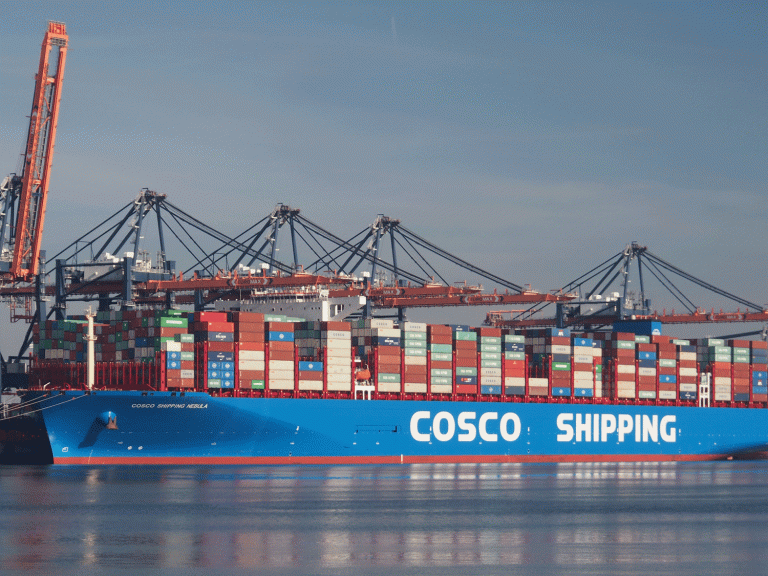
Date:
US Port Fees on Chinese-Built Vessels
The United States Trade Representative (USTR) has finalised a revised plan to impose port fees on Chinese-built containerships calling at US ports.
This follows the reintroduction of the SHIPS for America Act, part of President Donald Trump’s broader push to revive the US shipbuilding industry and reduce reliance on Chinese maritime infrastructure.
While significantly less disruptive than the original February proposal, which threatened to add up to $1.5 million per port call and cost the industry $24 billion, the revised version will still increase shipping costs by approximately $1 million per voyage. These added costs may have ripple effects across global supply chains.
What’s Changing – and When?
USTR Port Fee
- Start Date: Mid-October 2025
- Escalation: Costs will increase every 180 days over a three-year period
- Estimated Additional Costs:
- Chinese operators (e.g. COSCO/OOCL): USD $250–$1,600 per TEU
- Non-Chinese operators using China-built vessels: USD $100–$400 per TEU
Crucially, carriers will only be charged once per US rotation, not at every port call. Exemptions apply for:
- Vessels under 4,000 TEUs
- Voyages under 2,000 nautical miles
- China-built vessels owned by US-based carriers
Carrier Reactions and Supply Chain Impacts
Most non-Chinese carriers are expected to redeploy tonnage to avoid the fees, shifting Chinese-built vessels away from US trades in favour of non-Chinese built ships. Some may elect to use transhipment hubs in the Caribbean to bypass direct calls to US ports.
Chinese carriers like COSCO and OOCL will be hardest hit. With limited ability to avoid the charges, these carriers may lean more heavily on alliance partners like CMA CGM or Evergreen, potentially distorting market dynamics and reducing competition on some transpacific routes.
Despite initial fears, widespread surcharges are currently seen as unlikely. Market competition and alternative capacity could prevent many carriers from passing costs directly onto shippers, tthough selective route-specific or carrier-specific fees may still emerge.
SHIPS for America Act
This proposed legislation, while not yet passed, aims to further penalise Chinese-built, -owned or -registered vessels. It also opens the door for other “countries of concern” to be added in future. No cost estimates have been released, but shippers should remain alert to potential follow-on impacts.
The evolving policy landscape introduces fresh uncertainty for importers and exporters, especially those with supply chains linked to Asia–US routes.
Metro is actively monitoring developments and engaging with carriers and industry bodies to stay ahead of the real-time implications. Our goal is to help customers navigate any changes smoothly and make informed decisions.
If your business could be affected by these measures, or you simply want to future-proof your supply chain with revised routing strategies and updated landed cost assessments, please EMAIL our Managing Director, Andrew Smith.
